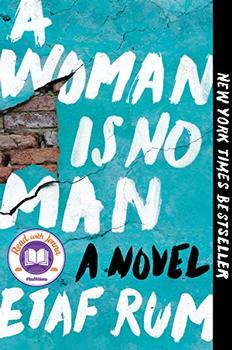Write your own review!
Jeannie B
Thought-provoking story of Islam women
I thought the book was informative about the cultural differences of Arab women in America and in Palestine. It provided insight into their way of life and their customs. The story was well written and followed 3 generations, although sometimes it was hard to go between dates and characters. I wasn't sure how to interpret the ending but it seemed like a good way to stop. I would recommend this book for people to consider family, marriage, children, feminism, & roles of society.
Denise
Interesting on multiple levels
Culture is the invisible string that controls our behavior. This author illuminates that philosophy in the characters of this book. A Palestinian family seeking refuge in the United States settles in a New York City of like minded immigrants in a tight knit community of Arabs and attempts to bring their Middle Eastern lifestyle with them.The story centers around the life of Isra, the young woman who is brought from Palestine to the U.S. when marrying this family’s oldest son, Adam. And woe is the life of an Arab woman whose first responsibility is to produce sons. Isra births four daughters. She is abused by her husband, becomes a slave to the family and lives a life devoid of pleasure and filled with acts of duty. She befriends her sister in law, Sarah, who fights against the arranged marriage her mother tries to force on her. The culture clash between the generations plays out as it pits the grandparent’s wishes against those of their children and grandchildren. The book is well written and structured to keep the reader’s attention as the story advances. It also delves into the story of Palestinian refugees and gives a broader appreciation of the challenges faced by immigrant communities, especially as they attempt to exist within American culture.
 Cathryn Conroy
A Hard, but Profound, Book to Read: A Story About Women Who Are Discarded, Invisible, and Abused
Cathryn Conroy
A Hard, but Profound, Book to Read: A Story About Women Who Are Discarded, Invisible, and Abused
Reading is magical. It transports us to places we can't visit on our own and drops us smack into cultures and lifestyles we would never otherwise experience. Reading can be a little like eavesdropping—being that proverbial fly on the wall. That is exactly what it felt like to me reading this book by Etaf Rum in which we readers become part of a conservative Arab-American family living in New York City.
That said, this is a sad book. Very, very sad. And the sadness never lets up. Just know that before you start reading.
Forget the melting pot. Khaled and Fareeda Ra'ad have been displaced from their homeland of Palestine, and even though the United States is a safe haven from the refugee camps, they are doing everything they can to keep their children from becoming Americans. Traditional Arab culture is king of this house, which means the men rule the women and the women submit, which means regular beatings and physical abuse by fathers and husbands.
It's 1990. Isra is 17 and living in Palestine when she marries Khaled and Fareeda's eldest son, Adam, in an arranged marriage and the next day leaves all she has ever known to live with Adam in the nearly windowless basement of his parents' row house in Brooklyn. Isra has one purpose: bear sons. Her domineering mother-in-law, Fareeda, makes her life miserable, while Adam's father and brothers ignore her. Only Adam's sister, Sarah, pays her any attention. But Isra fails. She only has daughters. Four of them. And she suffers greatly for this, both physically and emotionally as she lives a life shrouded in silence, violence, and fear. Isra's tragic, horrific story alternates in time with that of her daughter, Deya, a senior in high school who is being pushed by Fareeda into an arranged marriage against her will, as well as Fareeda's devastating, gruesome backstory. But secrets—awful, horrifying, unspeakable—secrets lurk beneath the surface and eventually bubble up. There is a little hope: Deya does something truly daring and that could change the trajectory of her life's planned path.
Note: The ending gave me chills, but it only makes sense if you recall the events that occur on pages 218-220.
This is a story about women who are discarded, women who are little more than the day's trash, women who are daily abused, women who are invisible, women who have no life beyond serving men who are ungrateful and brutal in return. This makes it a hard, albeit profound, book to read because it just never lets up. It is absolutely relentless.
According to the Etaf Rum (and do read the excellent interview with her at the end of the book), this is all real. She confesses to feeling "constantly swallowed by fear" for breaking the code of silence. This is a novel, but it's based on her life; she calls the book semi autobiographical. It is a true depiction of how women are actually treated in conservative Arab-American communities. And that makes this book even more dreadful and shocking.
There is one bright light: The book is also a love letter to books and the power or reading.
